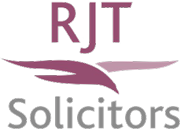If you get divorced or dissolve a civil partnership, your pension assets should be taken into account as part of any financial settlement. Pensions should not be ignored as they are often the most significant asset after a house.
The courts are able deal with pension arrangements in one of 3 ways:-
- Pension Sharing order:-
The court can order that you are given a percentage share of your ex-spouse/civil partner’s pension pot (or vice versa) by way of a Pension Sharing Order. Such an order offers a clean break for the parties as the pension assets are split immediately allowing each party to decide what to do with their share independently. Your share of the pension can be transferred to a new or existing scheme, or you may prefer for it to remain in the original scheme. The decision of what to do with your pension share is a matter upon which you should take independent financial advice
2. Pension Attachment order:-
A pension attachment order re-directs part or all of the member’s pension benefits to the ex-spouse/ civil partner, when it comes to payment. This does not provide a clean break, as an on-going link with your ex-spouse or civil partner will remain. If you decide to opt for pension attachment order, then when the member starts to draw retirement benefits, part or all of them are paid to the ex-spouse or partner. The Court instructs the scheme administrator or pension provider to make these payments to your ex-spouse or partner or vice versa. In England, Wales or Northern Ireland, these payments can be made from the member’s pension income and/ or, the lump sum. These orders replace pension earmarking orders in England, Wales and Northern Ireland (earmarking orders are still available in Scotland)
3. Pension offsetting:-
If you decide to opt for pension offsetting, each party retains their pension assets, but these are then offset against the other assets – for example, if one person has a large pension pot, the other may receive the house (assuming it has a similar value). As it can be hard to value some assets and as their values may change at different rates, it can be hard to fairly split assets using pension offsetting, especially as the value of a person’s pension schemes may, in the long run, be their most valuable asset.
Pensions can be difficult to deal with as part of financial issues arising from proceedings for divorce/civil partnership dissolution. It is important that legal advice is obtained as soon as possible and certainly before an application for decree absolute/ final order of dissolution is submitted. This is the final order that legally ends the marriage/ civil partnership and it may have far reaching effects upon entitlement to pension benefits. At RJT Solicitors we are able to explore all of the options available to you in respect of pensions and all financial matters arising from proceedings and we will work together with you to achieve the best possible outcome for your financial settlement.








